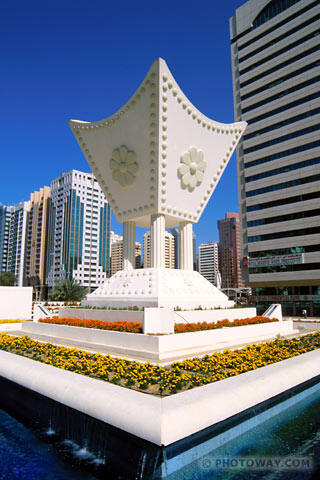|
Abu Dhabi
Property Prices Fall from Peak

Average prices for Abu Dhabi’s major property projects have dropped
by 15 per cent to 25 per cent since peaking in the third quarter of
last year, even though demand is outstripping supply in the capital
emirate’s property market, a real estate analysis firm said on
Saturday.
Landmark Advisory’s quarterly report about the Abu Dhabi market said
that property prices are returning to the level they were at in the
secondary market prior to last year’s peak. Speculative buying had
pushed prices up to an unrealistically high level, it said.
By the second quarter of this
year, average prices for properties
to be delivered after 2011 are likely to
be as much as 10 per cent
lower than they were when buyers and sellers first agreed to them,
Landmark Advisory said in its report.
It added that property sales in Abu Dhabi have ground almost to a
halt because buyers and sellers can’t agree on prices.
“Freehold and leasehold prices spiked after CityScape Abu Dhabi in
May 2008, and despite solid demand fundamentals, the market could
not sustain such high prices in the short- to medium-term. Now we’re
in a state of transactional gridlock in a market wanting
transparency,” said Jesse Downs, Head of Research at Landmark
Advisory.
“Investors and speculators saw Abu Dhabi as the ‘next big thing’
after Dubai, but by then the financial crisis had already hit the
UAE. Launch prices were benchmarked against Dubai’s already inflated
property values, so there was little room for appreciation even
before liquidity dried up,” Downs said in the report.
To understand the current state of Abu Dhabi’s freehold or leasehold
market, one must evaluate the motivations of buyers and sellers, the
firm said. “Sellers are motivated by original prices, while buyers
focus on absolute prices. So buyers are unwilling to buy at current
prices, but sellers are reluctant to sell below what they paid,”
Downs said.
“Due to this incompatibility, sales have ground to a halt.
Developers are now facing the prospect of renegotiating payments to
prevent defaults and preserving enough cash flow to continue
construction,” he said.
Regarding Abu Dhabi’s rental market, Landmark Advisory estimates
that average rents for villas and apartments rose by 35 per cent and
80 per cent, respectively, between the fourth quarter of 2007 and
the same quarter of 2008. Rental prices levelled out in last year’s
fourth quarter and have risen only slightly in January and February.
“After spiking, average rents appear to have hit a ceiling due to
supply-side substitutions,” Downs said.
“Residents are opting for housing
alternatives like accommodation-sharing, serviced or hotel
apartments, and auxiliary markets in Dubai and Al Ain.”
Source:Khaleej Times
|